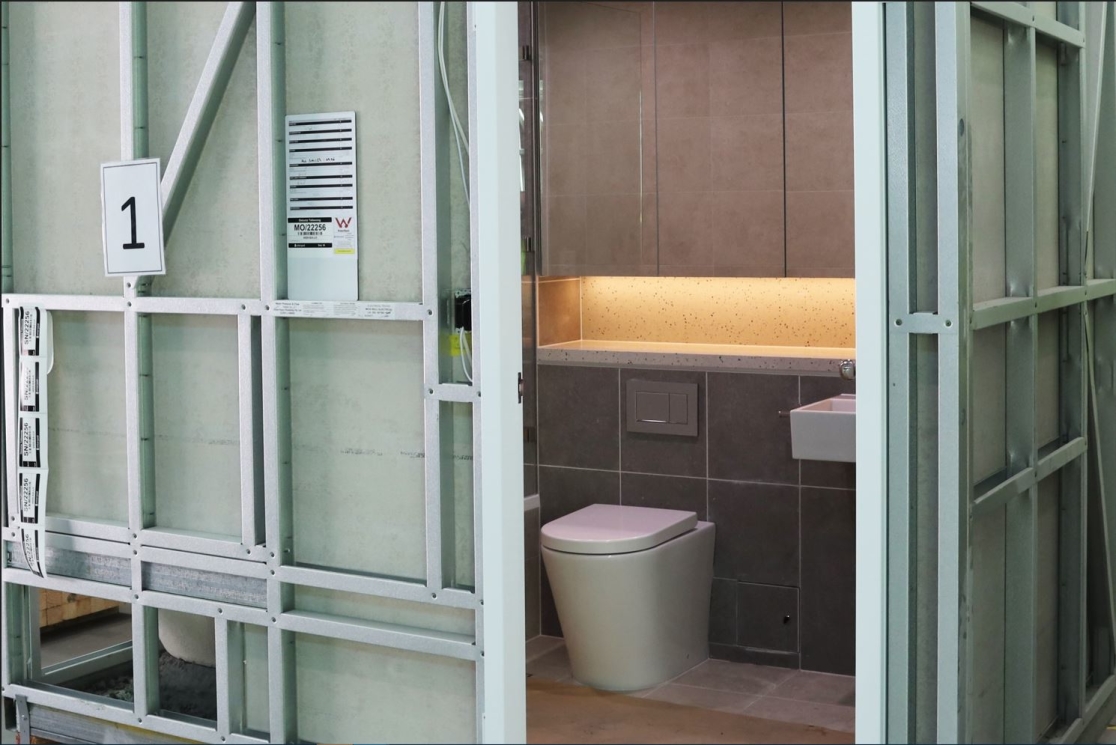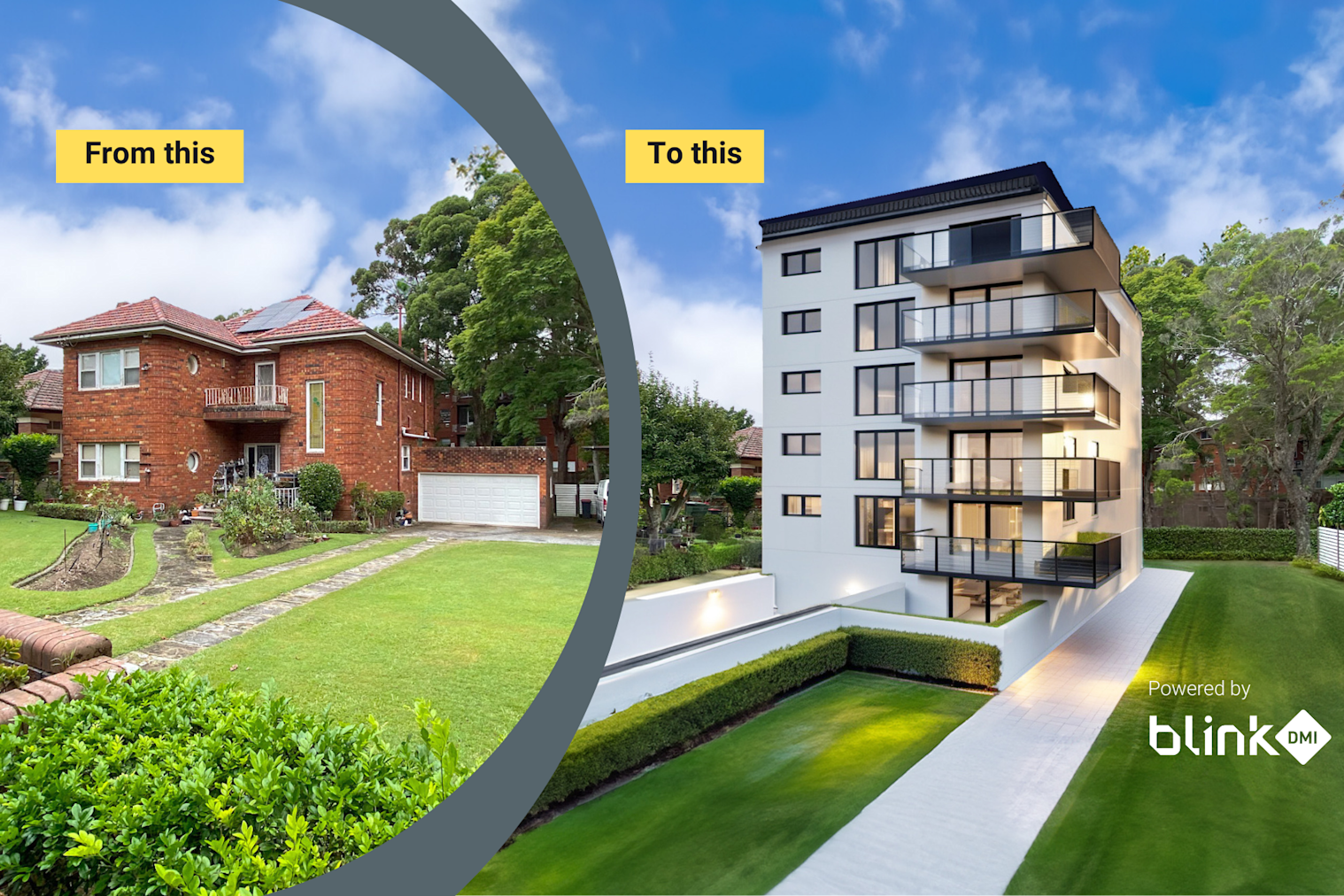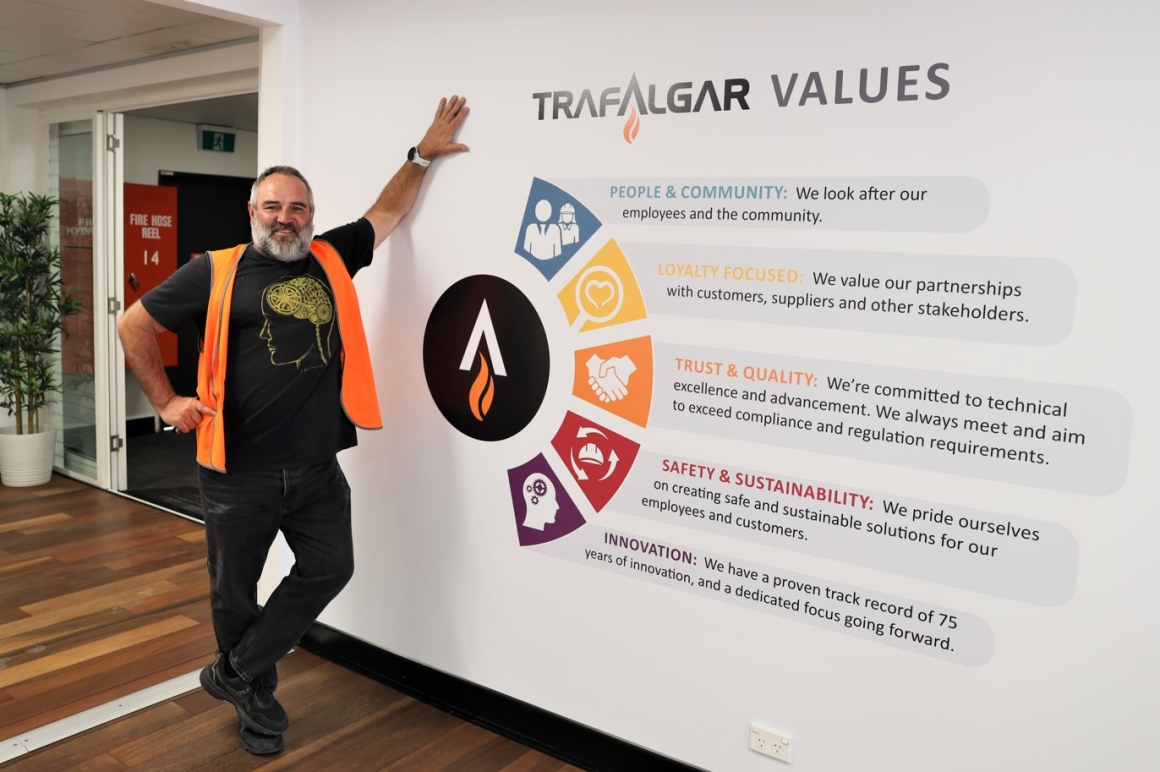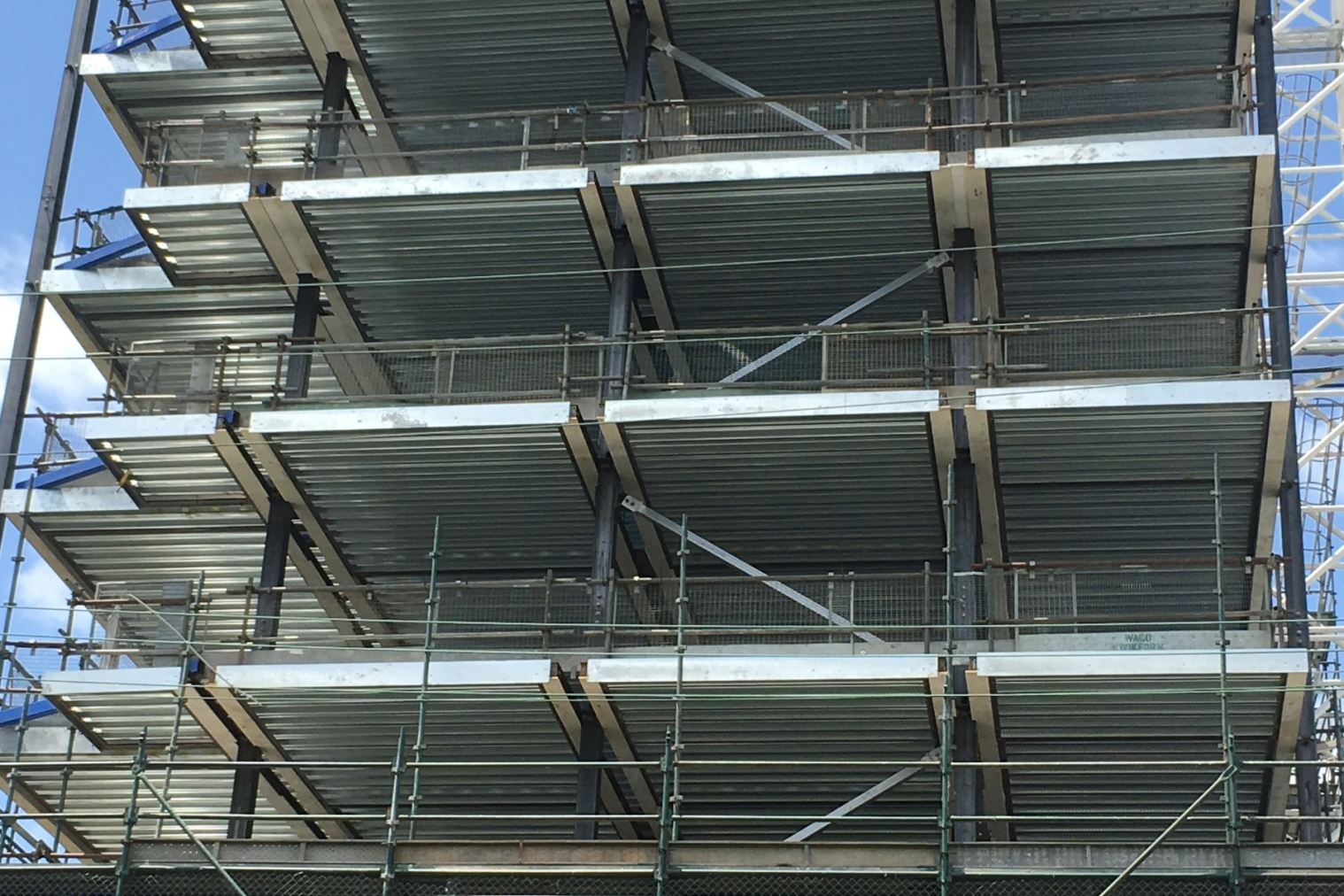
Bathrooms are one of the most complex, problematic and time-consuming areas in construction with the most trades per square meter than any other part of the building. For traditional onsite construction, there are myriad costs and risks to consider and estimate. Blink DMI® partner Interpod is Australia’s leading producer of prefabricated bathroom pods. Managing Director Cameron Monks tells us how they remove the headaches and uncertainty and deliver a better result faster for large-scale projects.
Cameron, can we start by explaining what is a bathroom pod?
A bathroom pod is a factory-built bathroom. It is still designed in line with each project’s aesthetics and requirements, but it is prefabricated off-site with all the benefits that entails. Bathroom pods are fitted with plumbing, mechanical, and electrical lines in the factory, and are simply connected to the building’s main service connections upon installation. Like all other offsite-manufactured components, bathroom pods can be prepared simultaneously while other stages of the project are happening. Once the building structure and supply lines are all set, a bathroom pod can then be craned up, rolled into position, and connected in less than 2 hours.

How do bathroom pods remove headaches from the build process?
The advantages of modular bathroom pods go well beyond time saved onsite, to include minimised waste, greater quality control, increased site safety, reduced congestion, faster delivery, and allowing more time available for other aspects of the project. Traditional onsite bathrooms involve 14 separate trades: a concreter, waterproofer, tiler, plumber, electrician, tiler, painter, plasterer, glazier, joiner, caulker, gyprocker, carpenter, and labourer. With offsite manufacturing, all trade works involved are overseen and carried out by the manufacturer. This single point of responsibility eliminates multi-tier contacting, which is a huge headache that typically adds cost, reduces certainty and makes warranties and quality control tricky.


What are the cost impacts of bathrooms pods on a project?
First, site-built bathrooms account for around 80% of project defects and this adds substantially to rework costs. We eliminate the defects typical of onsite builds by using the same trades, investing in ongoing training and innovating in a controlled factory environment. Of course, we test and monitor for defects in advance and all trades physically signoff on each pod. The bathroom pod is then locked up until delivery and installation with no further trade works required.
Second, builders usually spend a great deal of time coordinating contractors, which translates to higher project and development costs overall. With many trades involved, project schedules are naturally stretched out further to accommodate everyone. Offsite manufacture allows you accelerate the project timeline by up to 30% meaning owners and developers realise their profits much sooner and substantially increase their Internal Rate of Return.
The Blink DMI® process applies the benefits of offsite manufacture to the entire building including the superstructure. Onsite integration then becomes a logistics exercise with no surprises.
We are completely aligned with Blink DMI® and the importance of locking in the design of all components early through a collaborative process. Manufacturing concurrently with the structure rather than afterward changes the game in terms of time saving.
Once manufactured, we can store our bathrooms until needed onsite and deliver just in time when needed. Hold ups from individual trades are mitigated as bathrooms are delivered to site as complete units. In fact, we find that developers, specifiers, designers and contractors across Australia and New Zealand, prefer Interpod over the traditional onsite build. Also, unlike in a traditional build, being able to see a prototype version and check on your bathrooms before they are installed gives you peace of mind that your bathrooms will be built to your exact specifications.


How do you provide cost certainty?
Fast tracking materials for last minute projects is costly. Having materials signed off at the design approval stage gives all parties the certainty that stock levels for fixtures and fittings can be guaranteed. Since Interpod solely focuses on building bathrooms, we are experts in product sourcing and are unhindered by the challenges building procurement managers face when handling many different product types for site-built bathrooms. It’s something that comes from our experience having produced more than 31,000 prefabricated bathrooms to date.
Are there benefits with repeatability?
Yes. Developments such as hotels, aged care facilities, and residential buildings often require sets of bathrooms that are identical. Bathroom pods are ideal for these situations because we can easily produce multiple units of the same design in the factory. There are efficiencies of time and cost that just can’t be replicated onsite. For example, our production capacity allows completion of one large pod every fifteen minutes. Efficient, consistent and controlled processes also give clients clarity on completion dates and output times.
Tell us about the environmental aspects of modular bathrooms.
Traditional construction creates large volumes of waste which adds to cost, environmental impact and even onsite safety issues. Using lean manufacturing techniques, factory production typically produces less than 1.5% waste compared with >7% on a traditional construction site. The amount of material stored onsite and waste per bathroom is brought down to just the wrap that protects the bathroom pod during transport.
At Interpod, all structural bathroom pod components such as steel frames & GRC bases are fabricated in our Australian factory and this eliminates fuel and emissions associated with importing fabricated items We reduce and reuse materials that would be considered waste on a regular worksite. We also have exceptional waste management systems due to our strict quality control measures. And, when we deliver to site, we minimise onsite waste by recycling one Interpod bathroom wrap and two timber lifting gluts per pod, so there is zero waste to landfill and nothing needs to be stored onsite.

And the lifecycle embodied energy and carbon footprint?
From a life-cycle perspective, the amount of material waste saved by the modular construction process of a prefabricated bathroom more than offsets the increased structural material used.
According to Building Green modular construction has the capacity to substantially reduce the footprint of emissions, noise and air pollution by “reducing the total number of deliveries to sites by around 90%, and decrease the average travel distance of workers to the site by 75%”. And with less vehicles onsite, less foot traffic and less noise and air pollution, offsite construction is also far less disruptive to the local community.


Finally, tell us about the worker benefits of offsite construction.
Compared to conventional onsite construction, offsite modular construction is much safer than conventional onsite construction. Our environments are tightly controlled, process-driven and assisted by equipment to reduce physicality and danger. Workers are not exposed to the high-risk heights, tripping hazards, weather and sun elements or heavy machinery that are typical of onsite situations. We see this as an opportunity to attract greater workforce diversity and participation.
Are you a designer, manufacturer or integrator (builder)? Register your interest in becoming a Blink DMI® Partner today.


